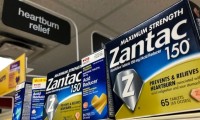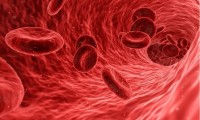-
Ahead of high-stakes California trial, GSK notches Zantac win in Canada
- Source: drugdu
- 120
- May 16, 2023
-
Sandoz taps Evotec in long-term biosimilar development and manufacturing deal
- Source: drugdu
- 205
- May 15, 2023
-
Sobi to acquire CTI BioPharma for approximately $1.7bn
- Source: https://www.pmlive.com/pharma_news/sobi_to_acquire_cti_biopharma_for_approximately_$1.7bn_1491454
- 124
- May 14, 2023
-
Otsuka, Lundbeck’s Rexulti nabs new use in Alzheimer’s disease agitation
- Source: drugdu
- 113
- May 13, 2023
-
Sobi Emerges as Savior for CTI Biopharma Cash Crunch With $1.7B M&A Deal
- Source: drugdu
- 112
- May 13, 2023
-
Experiment shows thoughts influence tactile perception
- Source: drugdu
- 105
- May 13, 2023
-
Mirati’s KRAS drug beats estimates in Q1, but Keytruda combo plan remains unclear
- Source: drugdu
- 370
- May 13, 2023
-
Cancer drugs among top 5 most affected by shortages in the US
- Source: drugdu
- 112
- May 13, 2023
-
Experts call for monitoring of respiratory vaccine after trials suggest possible increase in preterm births
- Source: drugdu
- 166
- May 12, 2023
-
Teva CEO Richard Francis, after 4 months at the helm, preps grand strategic reveal
- Source: drugdu
- 128
- May 12, 2023
your submission has already been received.
OK
Subscribe
Please enter a valid Email address!
Submit
The most relevant industry news & insight will be sent to you every two weeks.













